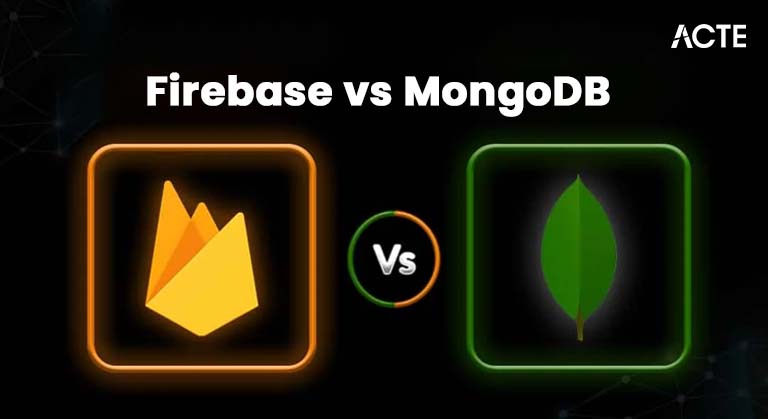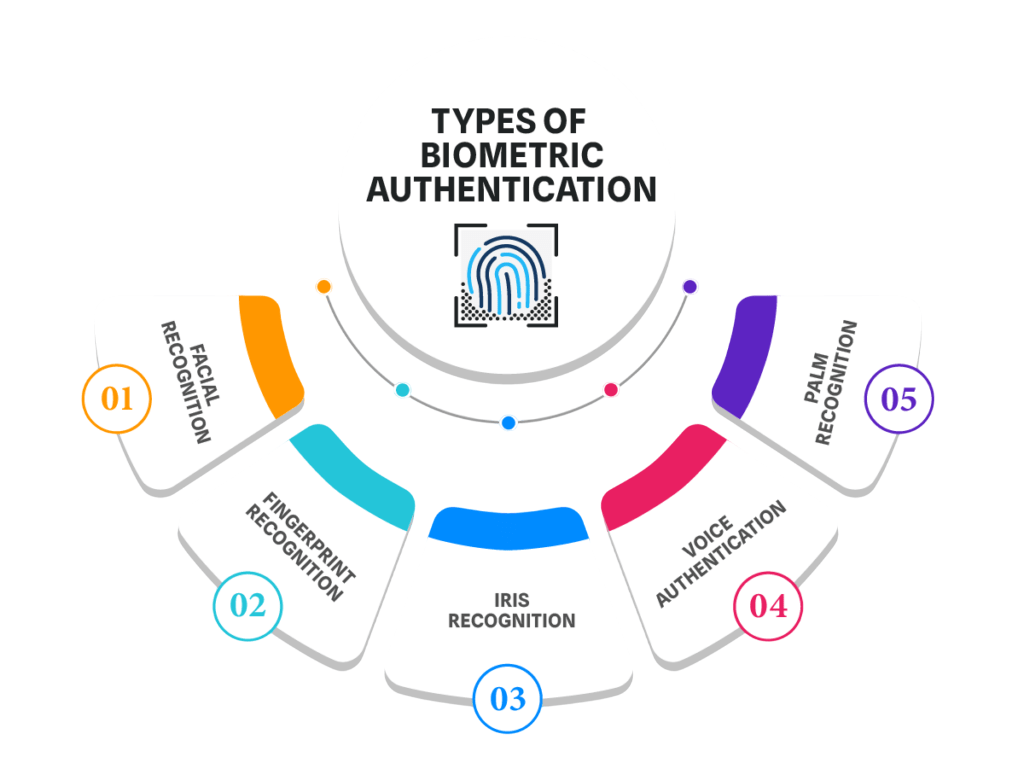
- Introduction to Firebase and MongoDB
- Data Structure: JSON vs BSON
- Real-time Capabilities
- Offline Support
- Authentication and Security
- Hosting and Backend Services
- Pricing Models
- Developer Tools and SDKs
Introduction to Firebase and MongoDB
Firebase and MongoDB are two powerful tools commonly used for developing modern web and mobile applications. Firebase, a backend-as-a-service platform by Google, offers a range of features such as real-time databases, authentication services, and hosting. It is widely popular due to its ease of use, scalability, and real-time capabilities, making it ideal for apps requiring instant data synchronization. MongoDB, on the other hand, is a NoSQL database known for its flexibility in handling large volumes of unstructured data. Unlike Firebase’s real-time database, MongoDB stores data in collections of documents, allowing developers to scale their applications efficiently with a document-based structure. When comparing Firebase vs MongoDB, the key distinction lies in Firebase’s seamless integration with Google Cloud services and its real-time syncing capabilities, while MongoDB provides more control over the data model with complex querying capabilities making it a valuable focus area in Database Developer Training. Developers working with these tools often focus on optimizing Data Structure Algorithms to improve application performance and ensure scalability. Additionally, Firebase offers built-in support for Multi-Factor Authentication (MFA), enhancing security by requiring users to provide multiple forms of verification. While Firebase’s MFA is integrated directly, MongoDB requires third-party integrations for advanced security features. Both platforms offer unique advantages depending on project requirements, with Firebase excelling in real-time apps and MongoDB in flexible data management.
Are You Interested in Learning More About Database Certification? Sign Up For Our Database Administration Fundamentals Online Training Today!
Data Structure: JSON vs BSON
- JSON is a text-based format used for representing data in key-value pairs, widely used for data exchange across different platforms.
- BSON is a binary format derived from JSON, but it supports additional data types like Date and Binary Data, making it more efficient for storing complex structures. Performance and Size:
- BSON is more compact compared to JSON, especially when dealing with large amounts of data, as it eliminates redundancies and encodes numbers in a more efficient way. This efficiency becomes particularly important when you compare HBase vs Cassandra Database, as storage formats and data handling play a crucial role in overall performance.
- On the other hand, JSON is less efficient in terms of storage size, but its human-readable nature makes it more suitable for simple applications and data exchange. Backend API Efficiency:
- For Backend API communication, JSON is preferred due to its simplicity, ease of integration, and compatibility across most platforms.
- BSON is better for internal communication within systems like MongoDB Cloud, where binary data and speed are critical. Compatibility with JSON Database Systems:
- Many modern databases, including MongoDB, support JSON as a default format for data exchange but store data in BSON format for more efficient retrieval and storage.
- JSON Database systems use plain text JSON for data manipulation and storage, but may internally convert to BSON for optimal performance.
When dealing with data storage and exchange, JSON (JavaScript Object Notation) and BSON (Binary JSON) are two formats that often come up. While both are used to represent data structures, they differ in several key aspects that affect their performance, storage efficiency, and application in backend systems. Below are six important points highlighting the differences between JSON vs BSON and their relevance to modern applications, especially in the context of Backend API development and cloud solutions like MongoDB Cloud.
Data Representation:
-
Usage in MongoDB Cloud:
- MongoDB Cloud utilizes BSON for storing data because of its space and speed advantages, especially when dealing with large datasets or complex queries.
- JSON, while compatible, is mostly used for importing/exporting data rather than for long-term storage. Tools like JSON Formatter:
- JSON Formatter tools are designed to beautify and validate JSON data, making it easy to read and debug. These tools are vital for JSON-based applications but are not typically needed for BSON, as it’s a binary format.
In conclusion, the choice between JSON vs BSON depends largely on your use case, performance needs, and the environment in which you’re working, especially with systems like MongoDB Cloud.
Real-time Capabilities
Real-time capabilities are essential in modern applications, allowing for instant updates and seamless user interactions. Firebase, a cloud platform by Google, is renowned for its real-time database, where data is synchronized across all clients instantly. This means any change made to the data is reflected in real-time, making it ideal for applications like chat apps, live notifications, and collaborative platforms. In contrast, MongoDB, a widely used NoSQL database, does not offer native real-time synchronization like Firebase. Understanding What is a Database and how different types function can help developers choose the right solution for their application needs. While MongoDB is excellent for handling large datasets and flexible data storage, its real-time capabilities need additional tools or configurations, such as MongoDB Change Streams, to track changes in data. When comparing Firebase vs MongoDB for real-time performance, Firebase provides out-of-the-box solutions, whereas MongoDB requires more manual setup. In both cases, developers often focus on optimizing Data Structure Algorithms to ensure data is retrieved quickly and efficiently, particularly in real-time scenarios. Moreover, security in real-time apps is crucial, and Firebase includes built-in Multi-Factor Authentication (MFA), providing an extra layer of protection. While MongoDB offers robust security, integrating MFA typically requires third-party solutions. Ultimately, the choice between Firebase and MongoDB for real-time applications depends on specific project needs, scalability, and security requirements.
Are You Interested in Learning More About Database Certification? Sign Up For Our Database Administration Fundamentals Online Training Today!
Offline Support
- Firebase provides built-in offline support for mobile and web apps, allowing data changes to be stored locally and automatically synced when the connection is restored. This is especially useful in mobile apps that require continuous functionality without interruption.
- MongoDB Cloud, while not having native offline support like Firebase, can be configured for offline storage using specific tools or custom solutions like MongoDB Realm for mobile apps. To fully leverage such configurations, it’s important to understand What Is Database Management And Benefits Of DBMS, as these concepts provide the foundation for building efficient, scalable, and reliable data-driven applications. Data Format Considerations:
- When it comes to offline data storage, JSON vs BSON plays a role. While JSON is simple and human-readable, BSON, being binary, allows for better space optimization and efficient storage in offline scenarios, particularly in MongoDB Cloud. Backend API Handling:
- In Backend API environments, offline support often involves queuing requests locally and pushing them to the server once online. Firebase makes this easy with real-time capabilities, while MongoDB requires additional configuration for seamless data syncing and retrieval. Efficient Data Storage:
- JSON Database systems like Firebase store data in JSON format and handle synchronization effectively. However, BSON, as used in MongoDB Cloud, can be more efficient for offline data storage due to its binary format.
- Offline support requires good error handling to ensure no data loss. Firebase handles this by storing data locally, while MongoDB can require custom scripts to handle syncing in offline situations. Tool Compatibility:
- For developers working with JSON Formatter, these tools can help debug and format JSON data before and after syncing from offline storage. However, since BSON is a binary format, developers working with MongoDB Cloud need to convert it to JSON for easy inspection and debugging.
- Firebase offers built-in backend services with seamless integration for real-time data synchronization across clients. This makes it ideal for applications requiring live updates, such as chat apps or collaborative tools.
- MongoDB Cloud, in contrast, offers powerful backend services for handling large datasets but requires custom setup to enable real-time functionality, typically through Backend API integrations or external tools like MongoDB Change Streams. Data Format and Storage:
- JSON vs BSON plays a role in data storage. Firebase uses JSON for data exchange, offering simplicity and ease of use. MongoDB, however, stores data in BSON, a more efficient binary format that allows for better handling of complex data types and large data sets. Understanding data formats, along with concepts like Types Of SQL Indexes is essential for optimizing database performance and structure. Flexibility in Backend Architecture:
- With MongoDB Cloud, you have the flexibility to build custom Backend API solutions, enabling you to manage complex logic and scale your backend services as needed. Firebase, however, offers a more abstracted approach, simplifying backend service management through its platform. Security and Authentication:
- Firebase provides out-of-the-box security and authentication features like Multi-Factor Authentication (MFA), making it easier to secure your backend services. While MongoDB Cloud offers robust security features, integrating features like MFA typically requires third-party tools or custom development. Ease of Use with JSON Database:
- Firebase is often considered an easy-to-use JSON Database solution because it stores data in a simple key-value format, making it more approachable for developers looking for rapid development. MongoDB, on the other hand, uses BSON for better performance and flexibility, but it requires a deeper understanding of database management. Development Tools:
- Tools like JSON Formatter help developers inspect and debug JSON data, which is commonly used in Firebase projects. These tools are invaluable for formatting data in a readable structure. For MongoDB Cloud, while developers primarily deal with BSON, converting it to JSON format for debugging and inspection is common, which makes JSON formatting tools essential.
Offline support is a critical feature for modern applications, ensuring that users can continue interacting with the app even when disconnected from the internet. Both Firebase and MongoDB offer solutions for offline functionality, but their approaches differ based on the data format and backend architecture. Below are six points highlighting how Offline Support works concerning JSON vs BSON, Backend API integrations, and more.
Data Synchronization:-
Error Handling and Sync:
In summary, offline support is essential for maintaining app functionality in low-connectivity environments. While Firebase provides out-of-the-box solutions for offline storage and syncing, MongoDB Cloud requires more setup and use of tools like MongoDB Realm to manage offline scenarios effectively.
Authentication and Security
Authentication and security are critical aspects of modern application development, ensuring that only authorized users can access sensitive data and functionality. Firebase offers robust built-in authentication features, including email/password login, third-party authentication (e.g., Google, Facebook), and Multi-Factor Authentication (MFA), making it easier for developers to implement secure user management without extensive configuration. MongoDB, while it provides secure user authentication through its native features and integration with external systems, does not have as seamless an authentication process as Firebase. Firebase vs MongoDB reveals that Firebase’s authentication services are more comprehensive and integrated, while MongoDB requires additional configuration or third-party tools to implement MFA and secure data access effectively. In both platforms, developers focus on optimizing Data Structure Algorithms to ensure secure storage and retrieval of sensitive information. Gaining a strong foundation through Database Administration Fundamentals Online Training can further enhance their ability to manage and protect data efficiently. For example, structuring data securely and efficiently in a JSON or BSON format can mitigate security risks. While MongoDB is often chosen for its flexibility and scalability, developers need to carefully design security protocols, especially in more complex applications. Firebase, on the other hand, provides a more straightforward approach for handling Multi-Factor Authentication, ensuring that user data is protected with an extra layer of security. Ultimately, both platforms can offer strong security features, but Firebase’s integration of authentication tools provides a more streamlined solution for many developers.

Hosting and Backend Services
Hosting and backend services are fundamental to modern web and mobile applications, as they handle everything from data storage to server-side logic. Firebase and MongoDB offer different approaches to hosting and backend services, each with its own set of tools and advantages. Below are six key points outlining how Hosting and Backend Services work in relation to JSON vs BSON, Backend API, and other technologies.
Real-time Data Handling:In conclusion, both Firebase and MongoDB provide powerful hosting and backend services. Firebase excels in simplicity and real-time data handling, while MongoDB Cloud offers more control over backend architecture and storage, especially for large-scale applications. The choice between these two platforms largely depends on project requirements, security needs, and the complexity of the backend infrastructure.
Pricing Models
When comparing pricing models for backend platforms, Firebase and MongoDB Cloud follow different strategies that cater to various application needs and scales. Firebase offers a flexible, usage-based pricing model, starting with a generous free tier that includes access to its real-time database, authentication, and limited hosting. As usage increases—especially in storage, bandwidth, and database reads/writes costs scale accordingly. This makes Firebase ideal for startups and small apps that gradually grow. In contrast, MongoDB Cloud, through its Atlas service, provides a free tier as well, but its pricing structure is more focused on storage, computing resources, and network access. To make the most of such services, it’s important to understand What is Data Modelling as it plays a key role in designing efficient and scalable database architectures. While Firebase uses a JSON Database structure, which is lightweight and simple to manage, MongoDB Cloud stores data in BSON, allowing for richer data types and better performance at scale, but often at a higher cost for large, complex workloads. Pricing also impacts how developers architect their Backend API interactions, as excessive reads or writes can quickly drive up costs on both platforms. Additionally, working with JSON vs BSON formats can influence processing and bandwidth costs due to their size and structure. Tools like JSON Formatter help developers analyze and optimize payloads, which is essential for cost-efficient operations in both Firebase and MongoDB environments.
Are You Preparing for Database Developer Jobs? Check Out ACTE’s DBMS Interview Questions and Answers to Boost Your Preparation!
Developer Tools and SDKs
Developer tools and SDKs play a crucial role in accelerating the development process by providing pre-built functions, integrations, and simplified access to backend services. When comparing Firebase vs MongoDB, Firebase stands out with its extensive set of SDKs for web, Android, iOS, Unity, and C++, making it highly accessible for developers across multiple platforms. These SDKs include seamless support for authentication, database operations, storage, and cloud messaging, along with built-in features like Multi-Factor Authentication (MFA), which can be implemented with minimal configuration. For those looking to get started quickly, Database Administration Fundamentals Online Training can provide essential knowledge to effectively utilize these tools.MongoDB, through its MongoDB Atlas platform, also provides robust developer tools and libraries, such as the MongoDB Compass GUI, native drivers for languages like Python, JavaScript, Java, and C#, and cloud-based features that enhance productivity. While Firebase simplifies backend integration with real-time features, MongoDB offers more control over database structure, performance tuning, and indexing key areas where understanding Data Structure Algorithms becomes essential. For instance, choosing the right algorithm to index or retrieve data can significantly impact app performance, especially in large-scale applications. In terms of flexibility and data modeling, MongoDB allows for more complex document schemas, while Firebase focuses on simplicity and speed. Ultimately, both platforms offer powerful SDKs tailored to different use cases, skill levels, and scalability needs.


